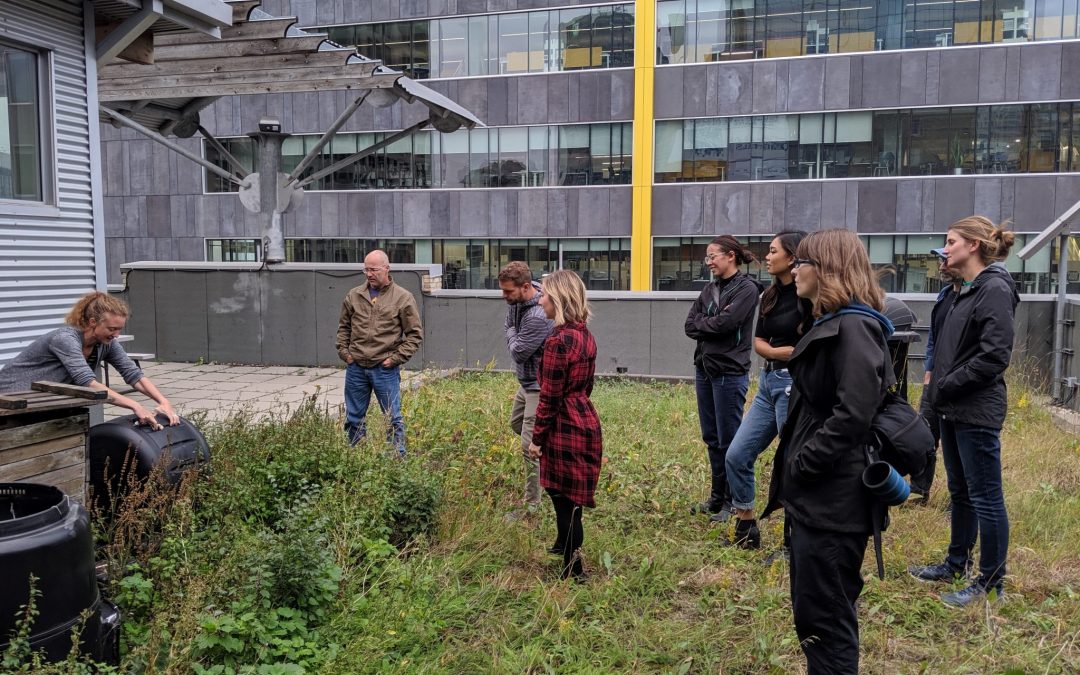Green Action Centre hosted a digital AGM this month, wrapping up the 2019-2020 fiscal year. In addition to electing new board members and voting on by-laws, we took time to celebrate another year of hard work.
Some key highlights from the 2019-2020 year include:
- Partnered on a provincial leaders debate, submitted a policy brief on electric vehicles, attended provincial consultations on single use plastic reduction, and more.
- Claimed the national Commuter Challenge title for Manitoba for the 15th year in a row.
- Initiated a project with funding from the Winnipeg Foundation to assist Winnipeg’s youth service agencies to find better and less carbon intensive ways to operate and deliver services, generating reports and implementation plans.
- Reached over 100,000 people with waste and plastic reduction messaging.
- Delivered 100+ school presentations to over 3,000 students.
- Collected nearly as much compost with Compost Winnipeg in April 2019 – 2020 as the total of all previous years combined!
- Supported Manitoba First Nations to reduce waste and increase diversion in their communities. Peguis, Fisher River, and Bloodvein diverted household hazardous waste, tires, e-waste, used oil and more.
- Received the Winnipeg Chamber’s Annual Spirit of Winnipeg “Environment and Energy” Award for our leadership in conservation, waste reduction and environmental stewardship in Winnipeg.
See our 2019-20 Impact Report here
View our 2020-2021 Board of Directors here

Tracy Hucul,
Executive Director

Lynne Skromeda,
Board Chair
Executive Director & Board Chair Note
The past year was challenging for Green Action Centre, working in a constrained environment due to uncertainty around provincial funding, then experiencing operational impacts from COVID-19. Despite this, we have an extraordinary number of things to celebrate! We remain on solid ground and are genuinely excited about the year ahead.
In 2019-20, we continued to grow our social enterprise, Compost Winnipeg, expanding our residential and commercial services, finding a new home for staff and our fleet of vehicles, and with support from the Winnipeg Foundation we acquired our first heavy duty commercial truck. We also continued to work with all three levels of government on our well-regarded waste reduction and sustainable transportation programs; built new partnerships with groups such as Telpay, Red River Co-op Food Stores, CAA Manitoba and a number of Youth Agency Alliance members; and maintained collaborations with key stakeholders and many longstanding corporate sponsors and community groups. With this growing list of allies, and the constant commitment of our awesome board and staff, we educated, advocated and worked with others to take bold climate action to support the shift necessary for a low carbon future. Thank you all for supporting our efforts and for the commitments you’ve made to improve our environment and community.
On September 27, 2019, we closed our office doors and our employees took to the streets to participate in the global climate strike alongside the Manitoba Youth for Climate Action and the 10,000-12,000 others who marched. Youth have shifted the conversation and the sense of urgency around the climate crisis, creating the largest coordinated climate action the world has ever seen. At Green Action Centre, we will continue to work with and support youth in their efforts to place climate change action at the top of everyone’s priority list.
We realize there is no environmental justice without social justice as they are undeniably intertwined; those most vulnerable to climate change impacts are largely those least responsible for it. Part of our commitment over the next several years will include enhancing our efforts to support and amplify marginalized and Indigenous voices and responding to the Truth and Reconciliation Commission’s (TRC) Call to Action #92, specifically to “commit to meaningful consultation and building respectful relationships” and to “provide education for management and staff on the history of Aboriginal peoples” through training in intercultural competency, conflict resolution and anti-racism. We know there is much more to do on a number of other levels since building climate resilience requires equity across multiple sectors and communities – recognizing we are all interconnected with nature and with each other.
Despite the many unknowns in the year ahead, we will continue to take a positive, hopeful approach as Manitoba’s green living hub, encouraging Manitobans to focus on doing what they can in their homes, schools, workplaces and communities to live greener, reduce GHG emissions and build climate resiliency.




Recent Comments